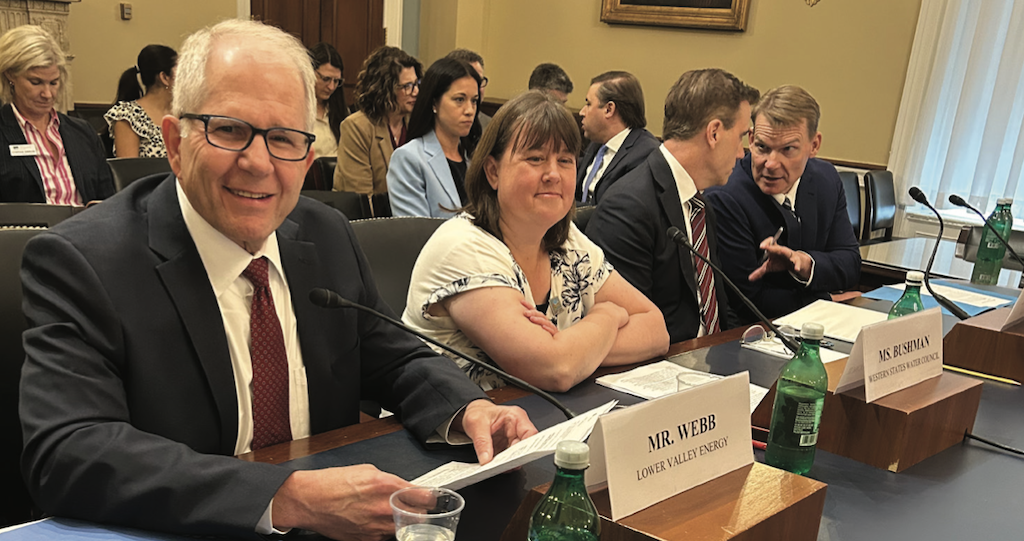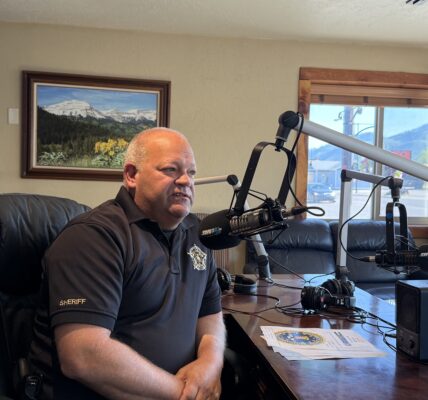
• Webb speaks to the importance of hydropower
Lower Valley Energy CEO Jim Webb defended hydropower before the U.S. House of Representative’s Committee on Natural Resources Subcommittee on Water, Wildlife and Fisheries April 30.
Wyoming Congresswoman Harriet Hageman (R-WY), chairs the committee.
“Hydropower helped us electrify America and is essential to our nation’s future,” Webb said in his opening comments to the committee.
“Hydropower is the nation’s oldest and largest source of renewable electricity, providing nearly 30% of all renewable generation in the U.S. It’s in a class of its own, though, as it offers dispatchable, low-cost, carbon-free power and plays a unique and irreplaceable role in maintaining grid reliability,” he said. “The topic of today’s hearing is critical to me because approximately 85% of LVE’s power generation comes from hydropower. While most of this power is federal hydropower marketed by the Bonneville Power Administration, LVE operates two low-impact hydro facilities at Strawberry and Swift and is exploring additional power generation at another existing dam in our area.”
Referencing a 2023 proposal to breach the dams in the Pacific northwest vital to Lower Valley Energy’s supply, Webb’s comment’s centered on the need to maintain power supplies.
“As we look toward future challenges and consumer needs, it is vital that all stakeholders — including tribes, public power utilities, states, and federal agencies — work together to achieve balanced and lasting solutions,” he said. “However, the recent Memorandum of Understanding announced on December 14, 2023, between the federal government, nongovernmental organizations, and the six sovereigns comprising the States of Oregon and Washington and four Native American tribes —raises serious concerns regarding process, equity, and long-term impacts on the energy and economic stability of the region.”
Noting the importance of Salmon recovery, Webb offered direction with his closing comments.
He said, “We fully support investing in salmon recovery, but we believe these goals can and must be pursued in a way that maintains energy reliability and protects the broader public interest. Regional solutions must be inclusive, science-based, and grounded in a complete understanding of trade-offs and alternatives, not driven by political agreements that preempt necessary debate.”
Webb concluded, “In closing, the Columbia River System and the Bonneville Power Administration are models of multipurpose public infrastructure. They deliver enormous value clean energy, flood protection, navigation, agriculture, and recreation, while helping stabilize energy prices and support grid resilience. As Congress considers the next phase of infrastructure investment and energy policy, I urge you to reinforce and modernize what is working, protect the integrity of our federal hydropower system, and ensure BPA has the tools and financial flexibility it needs to continue serving its public service mission.”




